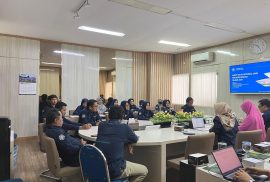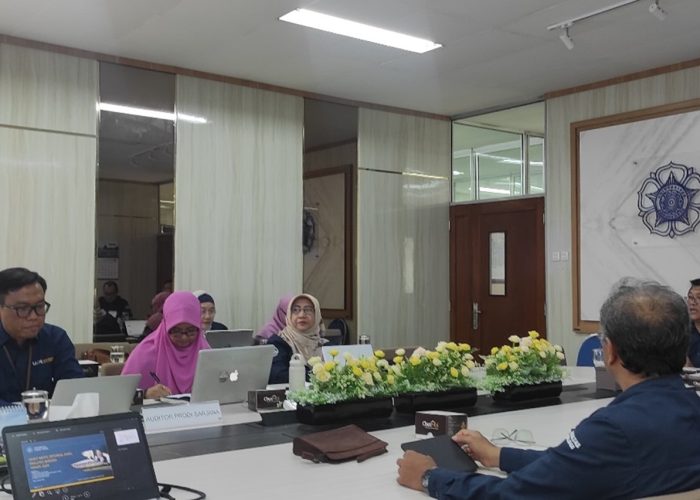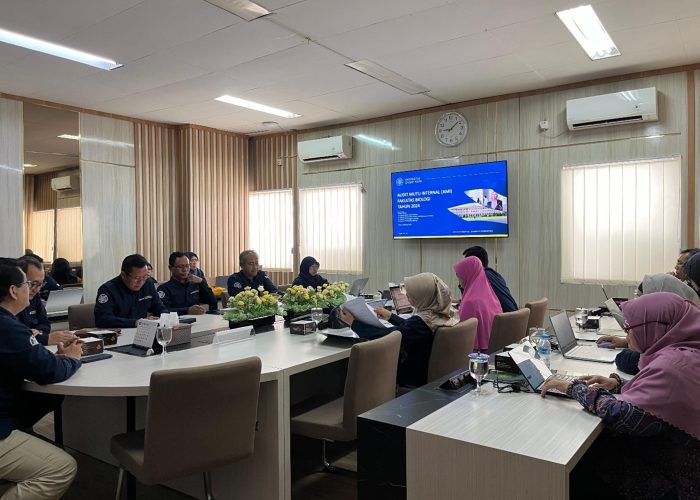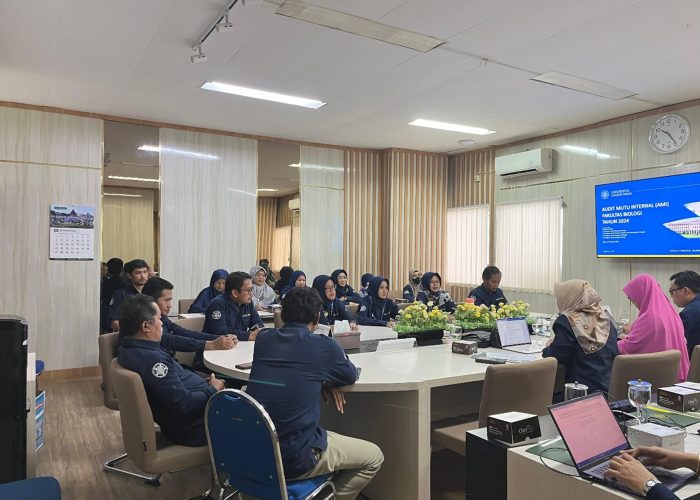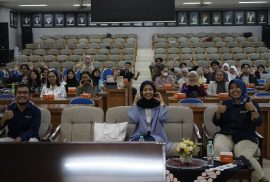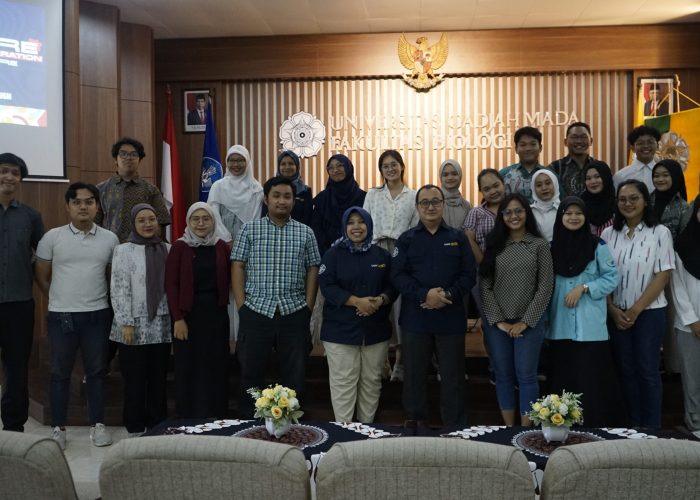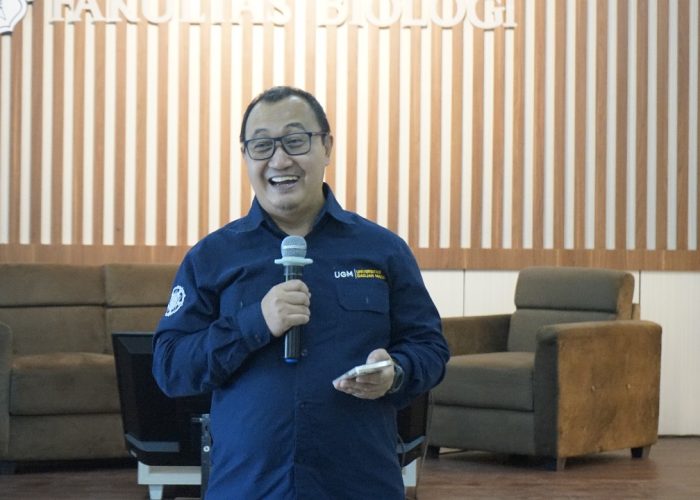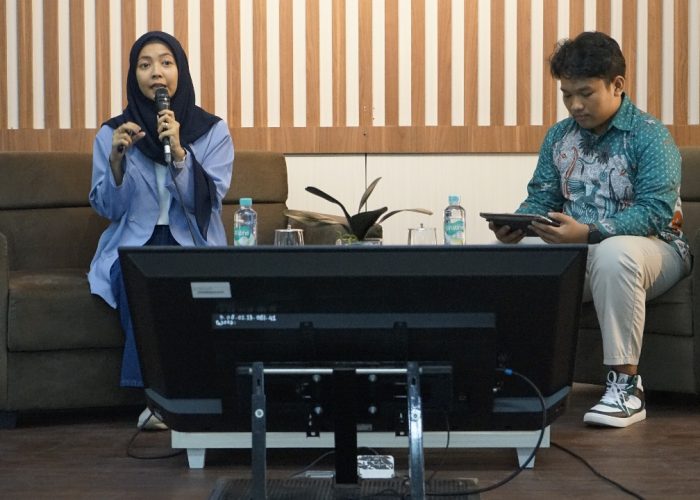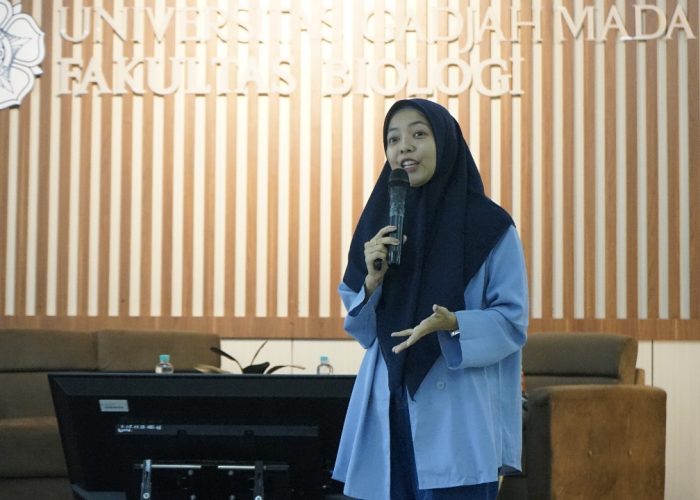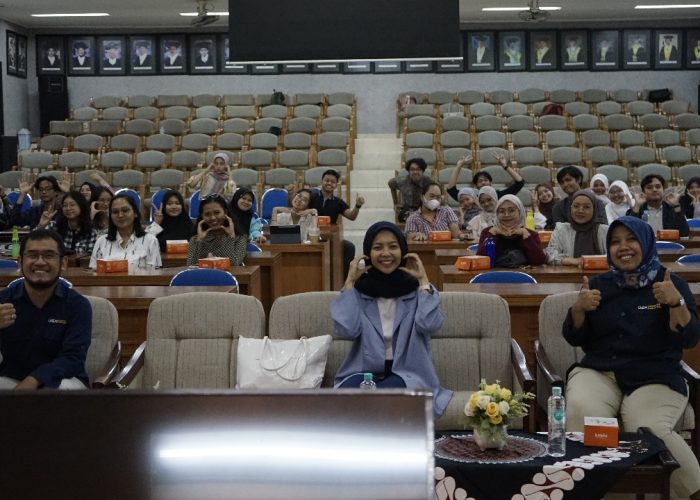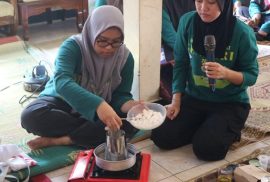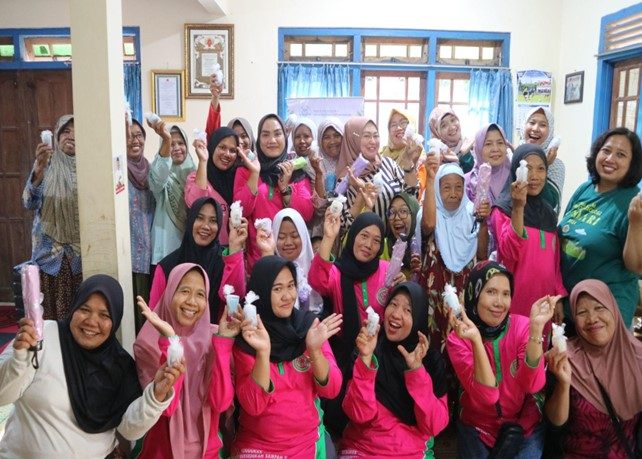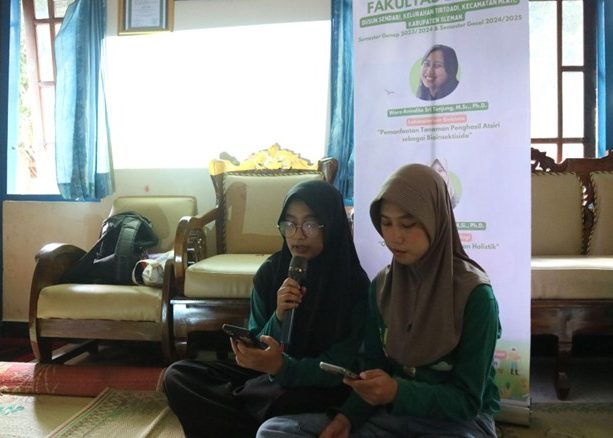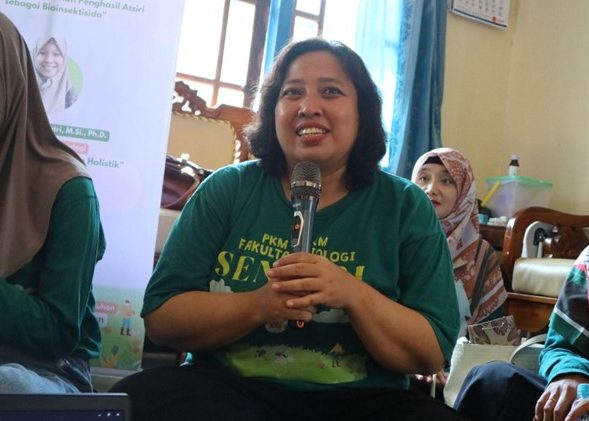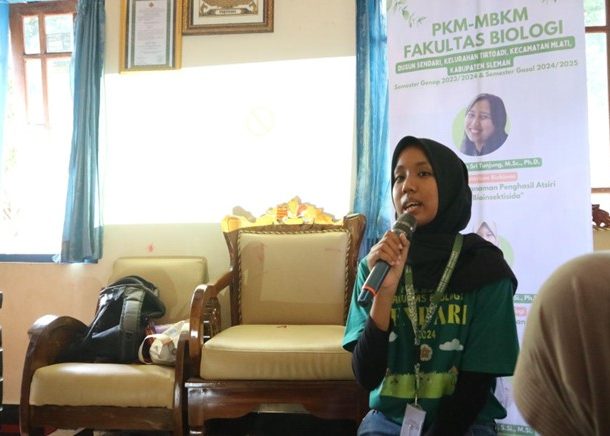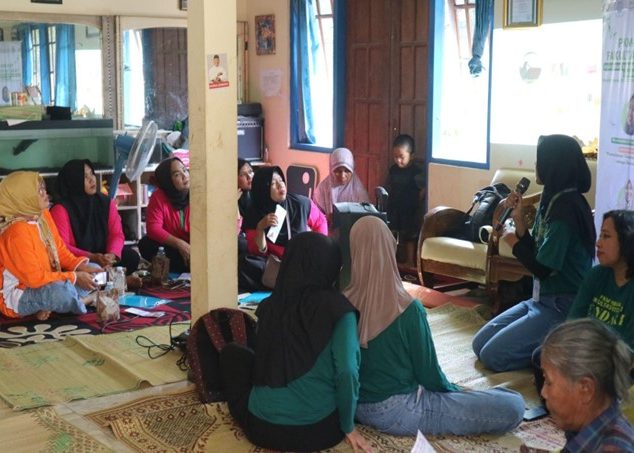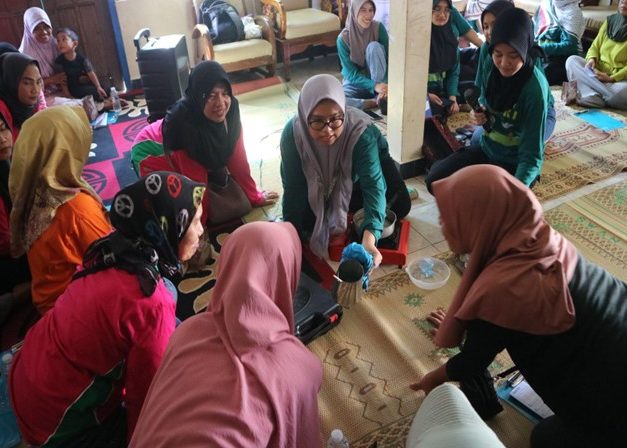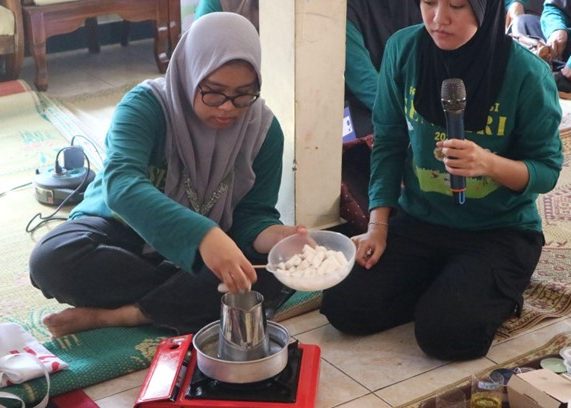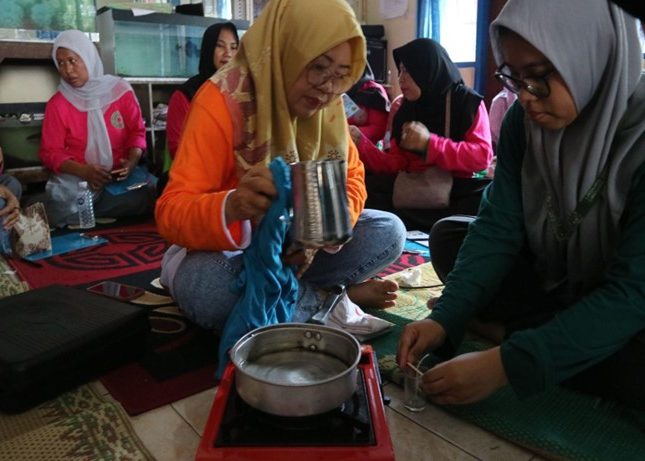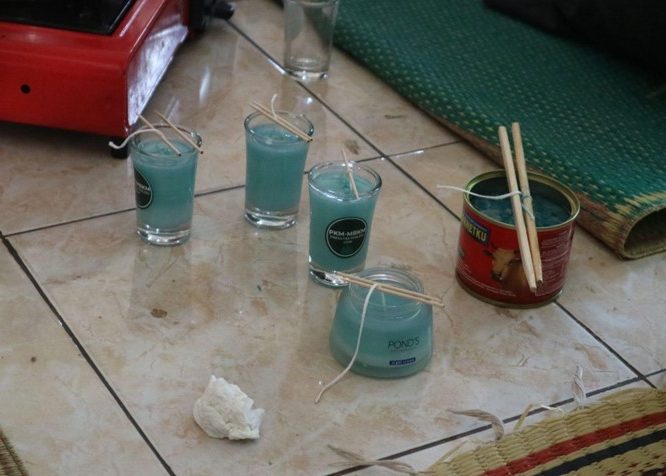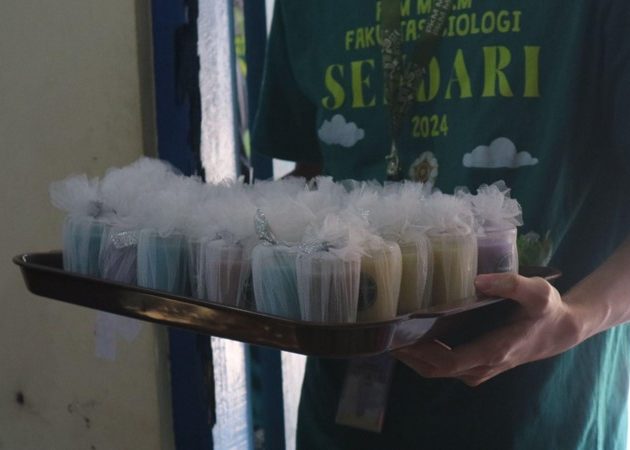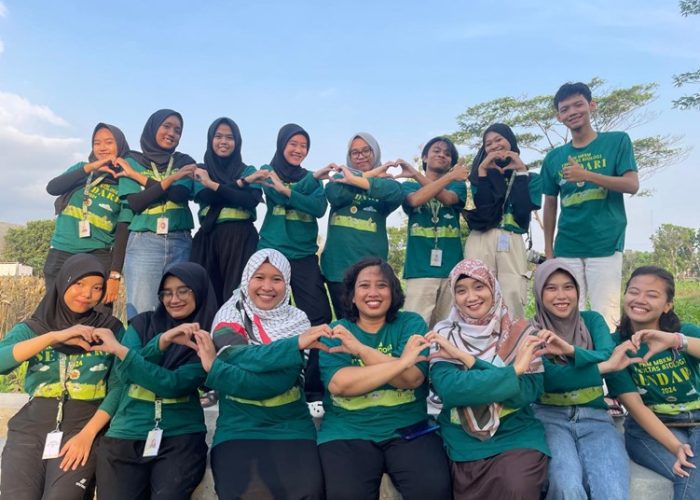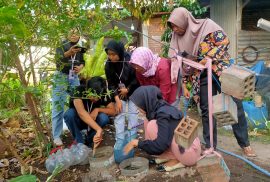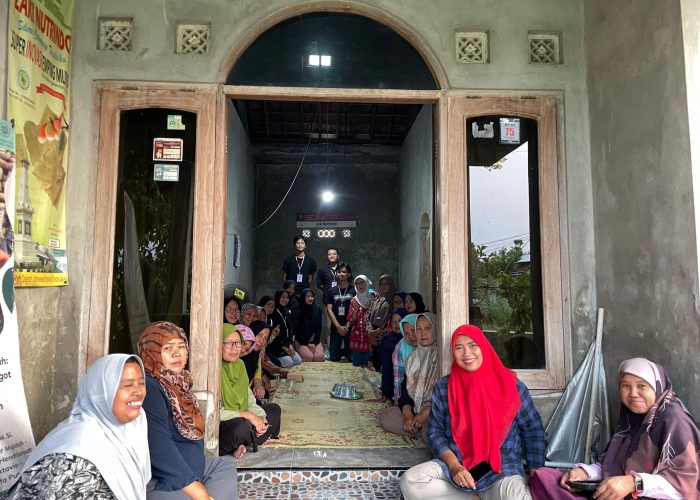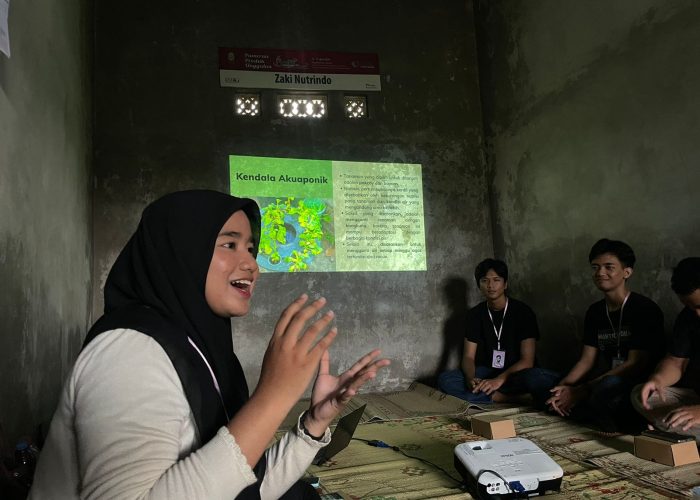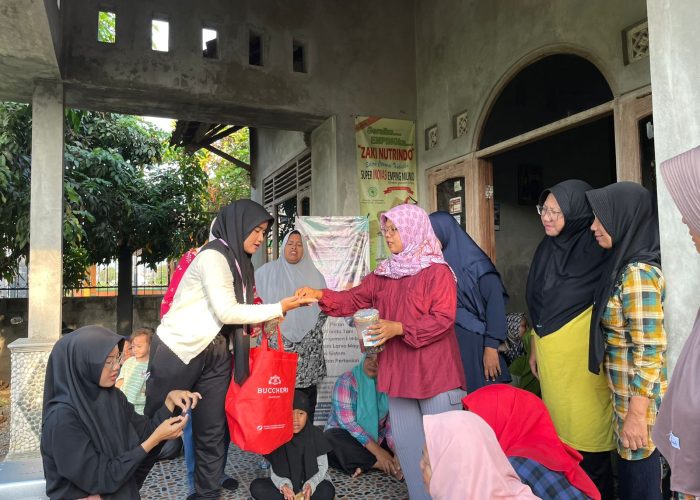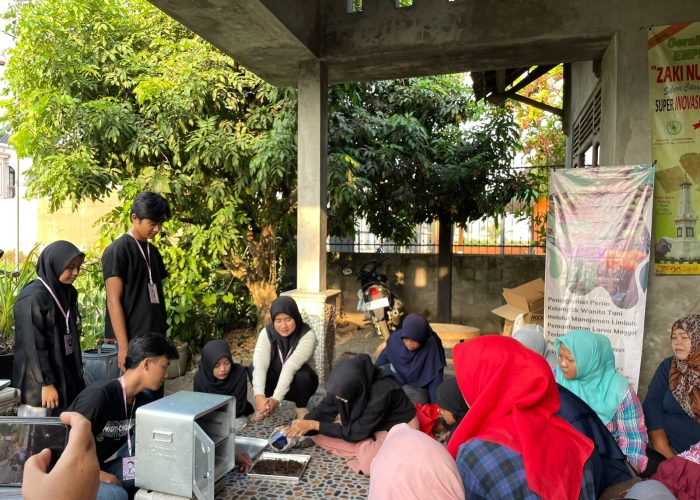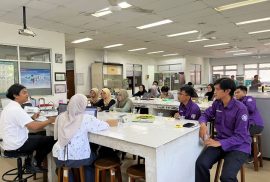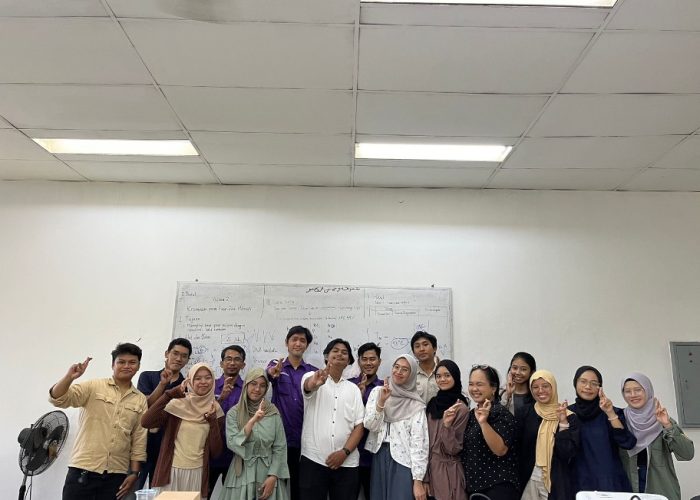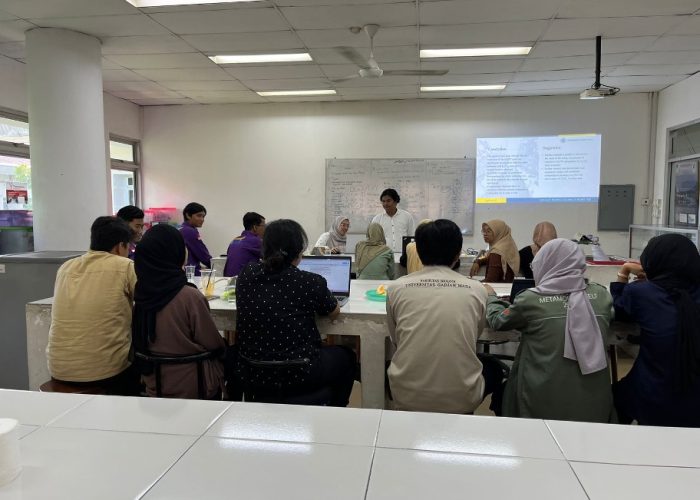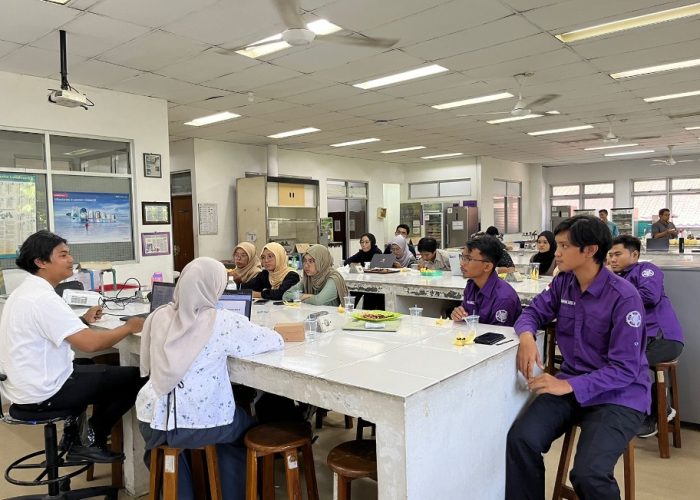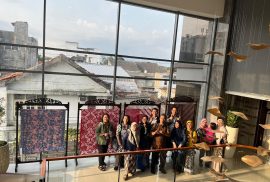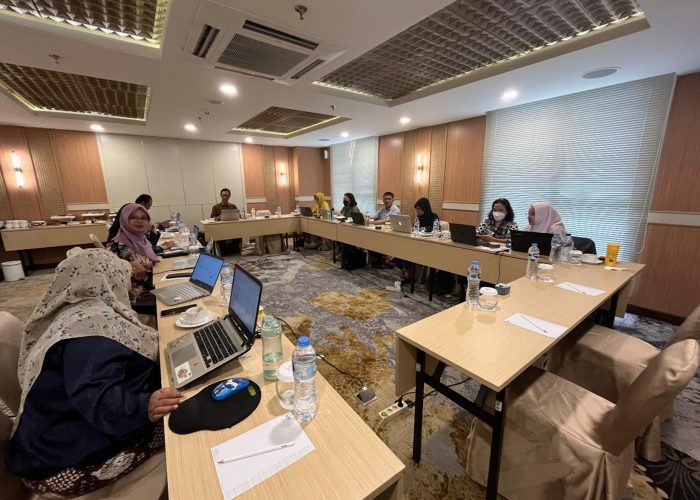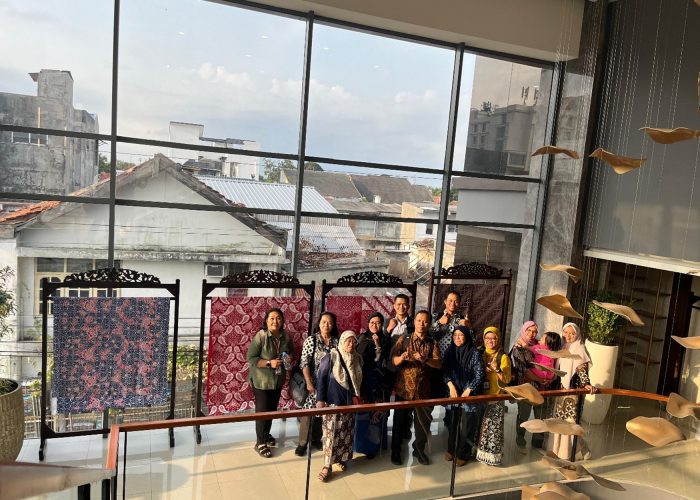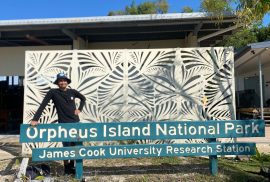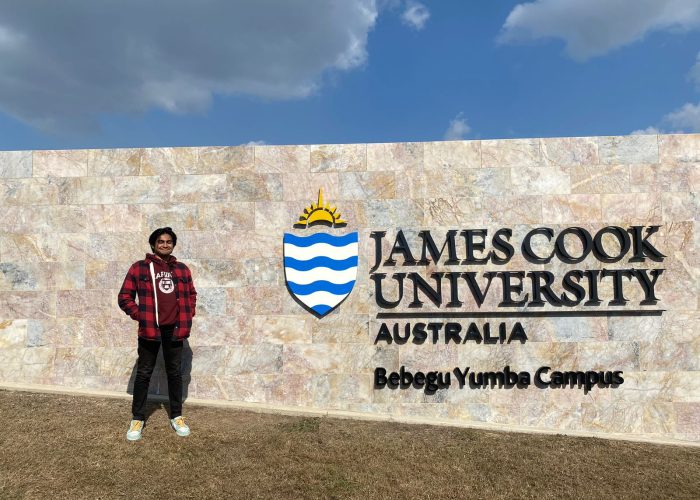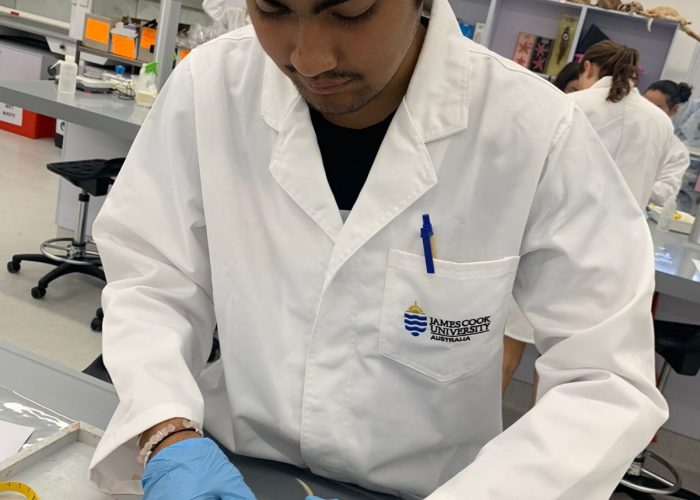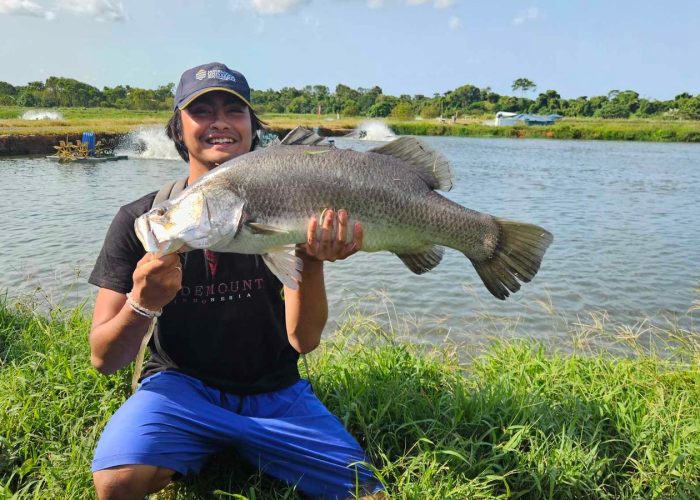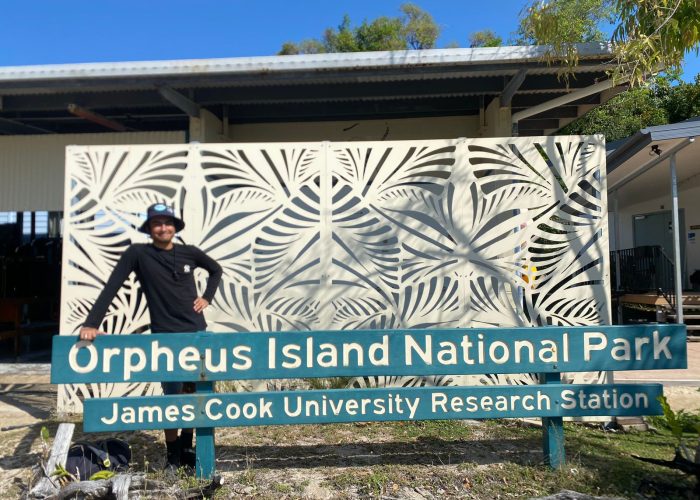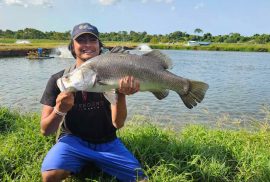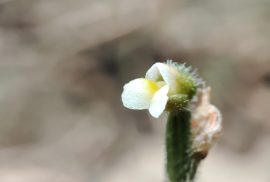SDG 4 : Provide Quality Education
On Friday, September 19, 2024 at 13.00-14.30 WIB, Gentalk 5 was held. The event was held at the Genetics and Breeding Laboratory, Faculty of Biology UGM. The event was aimed at Formasigen students and the general public.. Gentalk serves as a platform for active discussion and knowledge-sharing between alumni or seniors and Formasigen students, as well as the public, focusing on topics related to ongoing undergraduate thesis research. The speaker in Gentalks 5 are Karso Suryo Putro, S.Si. and Vida Rahma Latifah, S.Si., alumni of the Faculty of Biology UGM, class of 2020 and under the supervision of Prof. Dr. Budi S. Daryono, M.Agr.Sc., as their undergraduate thesis supervisor.
The event began with an introduction by the MC, Thoriq Abdul Halim, who serves as the Head of the Scientific Division of the GenomCity 2024 Cabinet. The session continued with a presentation by the first speaker, Vida Rahma Latifah, S.Si., on her undergraduate thesis research topic entitled “Identification of Climacteric Behaviour in Melon (Cucumis melo L.) Based on The Expression of Ethylene-Related Genes.” Vida explained that study aims to study changes in phenotypic traits related to ripening in different melon cultivars, to investigate the expression profile of ethylene-related genes in different melon cultivars during fruit development, and to identify the type of fruit ripening behaviour in melon based on the expression profiles of ethylene-related genes and ripening-related phenotypic traits. The activity continued with a presentation by the second speaker, Karso Suryo Putro, S.Si, on her undergraduate thesis research topic entitled “Analysis of Carotenoid Biosynthesis Gene Expression Levels in Melon Plant (Cucumis melo L. ‘Gama Melon Parfum’).” Karso explained that to study aims to determine the gene expression of CmPSY, CmCRTISO, CmLCYB, and CmOR in GMP fruit under foliar K2SO4 in comparison to control; to determine the gene expression of CmPSY, CmCRTISO, CmLCYB, and CmOR in GMP fruit under soluble K2SO4 in comparison to control; and to determine whether there is any statistically significance difference in phenotypic productivity and quality characteristics of melon GMP among three treatments. The activity concluded with a question and answer session with the audience, followed by a documentation session. [Author: Formasigen]
Wildan Fadhilah Kurnia Embarks on Transformative Semester Abroad at James Cook University, Australia
In addition to his coursework, Wildan is collaborating with Dr. Espen Knutsen, Senior Scientist and Curator of Paleontology at the Queensland Museum in Townsville, to further his ongoing thesis on fossils discovered in underwater caves.

